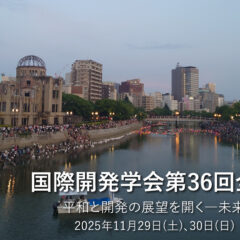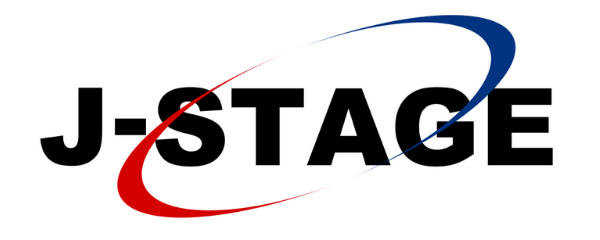第24回春季大会セッション報告(企画セッション)
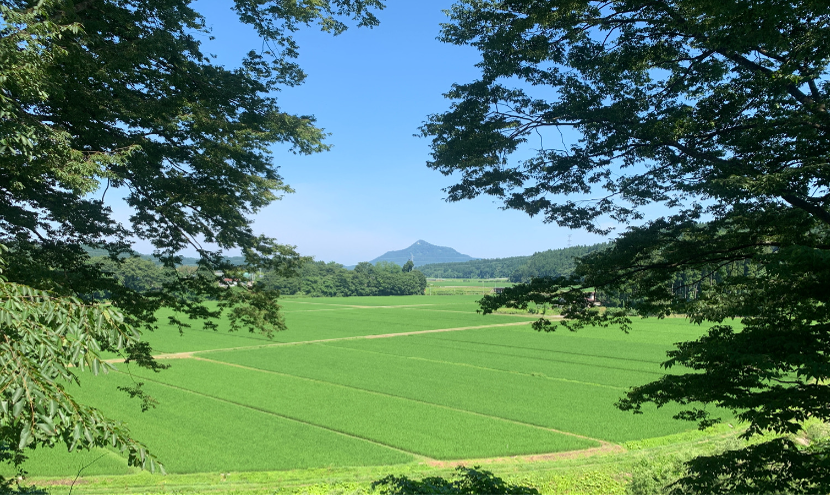
企画セッション
[C1-01] ブックトーク
学会誌編集委員会・ブックトーク担当:佐藤 寛(開発社会学舎)、島田 剛(明治大学)、芦田 明美(名古屋大学)、道中 真紀(日本評論社)
本ブックトークセッションでは会員による近刊4冊の書籍についての紹介が、著者および出版社の編集担当者よりなされ、出版にいたったきっかけや経緯、苦労等が共有された。
討論者からは、内容を踏まえての貴重なコメントが提供された。参加者は常時30名にのぼり、活発な質疑応答となった。
1. 報告者: 山形 辰史(立命館アジア太平洋大学)
- 担当編集者: 酒井 孝博(中央公論新社)
- 報告書籍: 「入門 開発経済学:グローバルな貧困削減と途上国が起こすイノベーション」(2023年3月、新書判、288ページ、990円)
- 討論者: 島田 剛(明治大学)
SDGsにおいて実質上の国際開発離れが進み、日本の国際協力は「開発協力」の名の下に、安全保障の一部に組み入れられようとしている。そんな現況において、(1)貧困削減は多くの国・地域で進んだが、いまだに「理不尽な悲惨さ」は残っていること、(2)開発途上国独自の技術革新が、一定程度進んでいて、今後も期待されること、を中心にして本書をまとめた。
開発経済学の入門書ということで企画を開始したが、経済学を学んでいない読者層を念頭に置いて執筆した。立命館アジア太平洋大学(APU)において「開発学入門」、「開発経済学」といった授業で教えた内容から、本書をまとめた。
2. 報告者: 山口 健介(東京大学公共政策大学院)
- 担当編集者:倉園 哲(株式会社NHK出版)
- 報告書籍:「ミャンマー『民主化』を問い直す ――ポピュリズムを越えて」
(2022年5月、B6版、288ページ、1,650円) - 討論者:折山 光俊(公益社団法人2025年日本国際博覧会協会)
アウンサンスーチー率いる国民民主連盟(NLD)によってようやくめどが立ちはじめていたミャンマーの民主化は、2021年、軍部のクーデターでリセットされてしまった。
では、ふたたびNLDが政権の座に戻ればそれでよいのか?本書は、それでは再度のクーデターを防げないとする立場から、軍部・民主派が共有する「ビルマ民族中心主義」の克服に向けて、経済的再分配を通じた新しいナショナリズムの形成に照準する。
当地の政治家と官僚の懐で開発政策を担った経験を踏まえ、イデオロギーに頼らない国民国家建設を提言する「希望」の書。
3. 報告者:吉田 鈴香(前千葉大学)
- 担当編集者:福島 延好(フリーランス)
- 報告書籍:「ミャンマー クーデターの謎ーカギは中国にありー」
(三恵社、2022年3月、B6版、218ページ、2,035円) - 討論者: 石戸 光(千葉大学)
20年間ミャンマーが起きていることをと歴史を追いかけてきたが、ミャンマー国軍の強さと政策の不可解さをきちんと解説する研究所はなかった。既存の定説は整合性がなくミャンマーの歴史の全容を理解する壁ですらあった。
星雲状態だった疑問を5つの「謎」に絞り込み、定説の記述→非整合性の指摘→関連文献の記述→仮説→当事者にインタビューを繰り返しながら追求した。特に中国との関係から理解を進めた。
学術研究者・地域研究者に向けてその過程を書き著すことで、既存の研究書の誤解を解きたく思った。2020年から本書を執筆し始めた途中の2021年2月、クーデターが起きた。
ミャンマーの建国の歴史について定説を覆す謎の解明を終えていた故、クーデターの背景を理解することができた。国境画定未達成を前提に開発、内政、外交、国防を同時に進める平和構築に協力できるか、学術研究者に問いたい。
4. 報告者:山田 肖子(名古屋大学)
- 担当編集者:下田 勝司(東信堂)
- 報告書籍:「『持続可能性』の言説分析」(2023年6月、A5判、128ページ、1,980円)
- 討論者:西川 芳昭(龍谷大学)
人々は「持続可能性」をどのようなものと認識し、その言葉を用いて何を議論し、それを社会制度や行為に反映させようとするのか。そして、そうした認識や行為は、人々の社会的立場や帰属する組織・集団、専門性によってどのように異なるのか。
本書では、持続可能な社会を思い描く際に、人々の思考の根底にある基底価値をマッピングするとともに、その基底価値をもとに、個々人がどのように持続可能性を脅かす可能性のある課題とその解決策を認識するかを定量的・定性的な言説分析の手法を用いてときほぐそうとしている。
第1章で、持続可能性の概念史、さらにSDGsという国際目標が作られ、合意された過程について概観する。
第2章では、1990年代以降、「持続可能性」を主題とする学術論文が理系に傾倒していき、思想的、社会的、文化的な考察がほとんどなされていないことを示す。そのうえで、第3章は「教育」と「持続可能性」を検索語としてウェブからダウンロードした文書の定量テキスト分析、第4章では、「経済」「教育」「持続可能性」に関する新聞分析、第5章は、「持続可能性」への貢献を謳っている企業広告に対する消費者の反応についての質問票調査の結果を示している。
報告者:芦田 明美(名古屋大学)
[C2-02] ポスト資本主義時代における経済振興のあり方を考える―地域主義の観点より
Examining how best to advance economic promotion in the post-capitalist era: From a local community-based perspective
- 12:30~14:30
- 企画責任者:真崎 克彦(甲南大学)、藍澤 淑雄(拓殖大学)
- 司会者:真崎 克彦 (甲南大学)
- 討論者: 藍澤 淑雄(拓殖大学)、高須 直子(神田外語学院)
- 聴講人数:約20名
- 地域主義の意義と可能性―ポスト資本主義時代における価値創造
真崎 克彦(甲南大学) - 加工業者・グループの発展とローカル経済の関わり―タンザニア・モロゴロ州における「混合粥の素」の生産
加藤(山内)珠比(京都大学) - 地域から掘り起こす新しい「豊かさ」―東日本大震災を経験した福島県二本松市の取り組みから
斎藤 文彦(龍谷大学)
コメント・応答など
本企画セッションは、国際開発学会「市場・国家との関わりから考える地域コミュニティ開発」研究部会の成果に基づく。
最初の座長による趣旨説明では、地域主義(地域住民の一体感を基盤として地域の経済循環を推進)の今日的意義とそれを取り巻く課題について説明があった。その上で加藤会員と斎藤会員の報告について、質疑応答やディスカッションを行う形で進められた。
加藤報告では、在来食材に栄養価の高い食材を混ぜた粥の加工に従事する女性グループの事例として、女性どうしの加工技術や市場情報の相互共有を原動力としてコミュニティ経済を振興する可能性が例証された。
コメンテーターの藍澤会員と高須会員からは、加工業者・グループが在来粥を商品に発展せしめた過程や、経済効果に関わる数値データを明示することで、今後の研究でグループの地域の経済への貢献度をより明らかにすることへの期待が表明された。
また、コミュニティ経済の成功を地域在来の文化や価値がどのように後押ししたのか、成功の結果、どのような社会変化がもたらされたのかについての質問が出された。
加藤会員からは、タンザニア固有のウジャマ―の価値観がグループメンバー間の互助につながったのではないか、またグループ活動の結果、グループ内での助け合いが強まった、またグループ外では食の安全性に対する意識やそれを満たす標準品を作ろうと言う動きにつながったと回答があった。
斎藤報告では二本松市の事例を通して、三重運動の視点より「豊かさ」の鍵が主体の自律性、セーフティネット、平等や公平性の実現にあることが論じられた。そうした「豊かさ」と現状の乖離を解消していく上で、ケアの倫理を基盤としたポジティブサムの関係性が大切となる。
コメンテーターの藍澤会員と高須会員からは、二本松市の社会連帯経済の関係者に共有されている「価値あるもの」とはどういうものなのかについて、さらに明快な言語化を進めることへの期待が表明された。また、行政主導による「オーガニックビレッジ構想」が地域の「豊かさ」につながり難い理由と対処法について質問が出された。
この質問に対して、これまでのさまざまな取り組みの積み重ねが複雑に絡み合って影響している旨、回答された。同時に、例えば農家民宿を営む宿は増えつつあり、必ずしも先発組が利益を独占せずに後発組とも客を分け合い、地域全体として目に見える利益も見えない利益も分かち合おうとするポジティブサムの関係性が見られる、と説明された。
総括
2篇の事例報告を通して、人どうしの顔が見えやすい地域において、地元の風土に基づく一体感を活かした経済振興を進めれば、より「実質的な意味」(人間の生存・生活との関わり)に即した経済振興を進めることができることが明らかにされた。
同様の地域実践を広めていくことで、経済を「形式的な意味」(経済合理性や効率性の観点)でとらえがちな時勢を改めていく契機を手繰り寄せることができよう。
報告者:真崎克彦(甲南大学)/ 藍澤淑雄(拓殖大学)
[G3-01] Learning from Current Practices in Sustainable Society
- [オンライン] 14:45~16:45
- Organizer: Naoko Shinkai (Tsuda University)
- Chair/Moderator: Naoko Shinkai (Tsuda University)
- Discussant: Shirantha Heenkenda (University of Sri Jayewardenepura)
- “Using reflective methods to develop the indigenous seasonal calendar.”
Pei-Hsin Hsu (Taiwan Forestry Research Institute) - “Sustainability of Community Tourism in Cambodia.”
Rido That (CamEd Business School/Royal University of Phnom Penh) - “Micro and Small Enterprise Practices in the Philippines: Navigating Resilience and Sustainability Challenges Amidst the COVID-19 Pandemic-A Case of Eco-tourism Sites-.”
Maria Kristina Alinsunurin (University of the Philippines Los Baños) and Naoko Shinkai (Tsuda University) - “The role of innovation and entrepreneurial spirit on sustainable SME growth amidst Covid-19 pandemics.”
Bangkit A. Wiryawan (Diponegoro University) and Esther Sri Astuti (Diponegoro University)
コメント・応答など
This session on “Learning from Current Practices in Sustainable Society” aimed to share practices and issues encountered when developing a sustainable society in Asia.
This session was organized by the research group on IDSSP (Innovation and Development for Solving Social Problems) of JASID to reassure the direction of research on innovation and development.
Four presenters were invited to give their experiences in the fields.
First, Dr. Pei-Hsin Hsu from Taiwan Forestry Research Institute presented on “Using reflective methods to develop the indigenous seasonal calendar“ and shared the results in the research on preserved traditional local knowledge and resource management system in one of the indigenous communities in Taiwan, Kalibuan.
As a research method, a participatory seasonal calendar approach was employed to detect farming activities of traditional crops, beans, in the community.
She suggested the use of this calendar for educational purposes to prepare for the loss of cultivation of traditional crops.
Second, Dr. Rido THATH at Royal University of Phnom Penh, presented on “Sustainability of Community-Based Tourism in Cambodia” and talked about tourism, which is one of the main contributors to economic growth in Cambodia, and the prospect of community-based tourism as a driver of local economic growth.
Through his literature survey and analysis, promising tourism communities, environmental resources, and intrusive factors were identified.
Third, Dr. Maria Kristina G. Alinsunurin at the University of the Philippines, Los Baños, presented on “Micro and Small Enterprise Practices in the Philippines: Navigating Resilience and Sustainability Challenges Amidst the COVID-19 Pandemic-A Case of Eco-tourism Sites-“, which is co-authored by Dr. Naoko Shinkai at Tsuda University.
She demonstrated the impact of COVID-19 in the tourism sector, remaining effects, and coping methods, based on the findings from key informant interviews in the tourism sector at selected ecotourism sites in Laguna province, along with the research framework.
The stakeholder analysis was applied and the strategies and innovation of MSEs in the tourism sector for resilience and sustainability were identified as well as policies to consolidate those activities.
Lastly, Dr. Bangkit A. Wiryawan at Diponegoro University presented on “The role of innovation and entrepreneurial spirit on sustainable SME growth amidst Covid-19 pandemics”, on which Dr. Esther Sri Astuti at Diponegoro University is a co-author, and illustrated the findings from the research on the relationships among three variables, entrepreneurship, innovation, and SME development in the third year of the COVID-19 pandemic in Indonesia.
Regression analyses with sectoral and provincial dummies were made with the primary data on SMEs, collected recently in thirteen provinces in Indonesia.
The positive relationship between entrepreneurship and sales was found, whereas the relationship between innovation and sales was negative.
Comments for all four presentations were provided by Dr. Shirantha Heenkenda, Dean of the Faculty of Humanities and Social Sciences at the University of Sri Jayewardenepura.
The points addressed were the existing initiative of the indigenous community on traditional knowledge and local resource management, the strategy for ownership creation in community-based tourism, the mechanism to connect stakeholders in tourism, and the role of seed capital in entrepreneurship and SME development.
Most of the participants of this session joined from various parts of the world and the efforts to enable this session are very much appreciated.
I am also thankful to JASID and JASID Conference organizers, conference participants, for having established the online venue and provided support.
Naoko Shinkai at Tsuda University,
the Chair of the IDSSP, served as a facilitator.
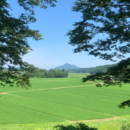
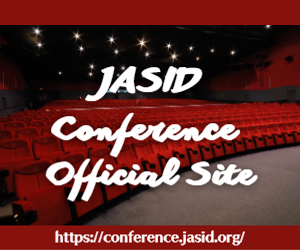

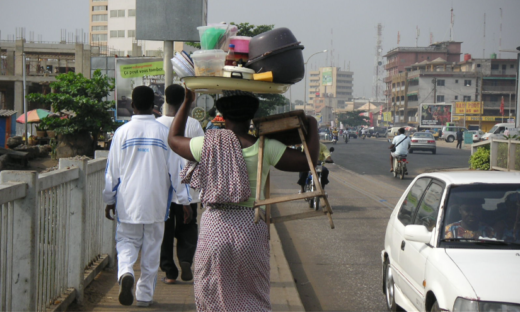

![社会的連帯経済 [FY2022-]](https://jasid.org/wp/wp-content/uploads/2021/11/eye-Social-and-Solidarity-Economy-520x312.png)
![倫理的食農システムと農村発展 [FY2021-]](https://jasid.org/wp/wp-content/uploads/2021/04/rersearch-groups-eye-5-520x312.png)






